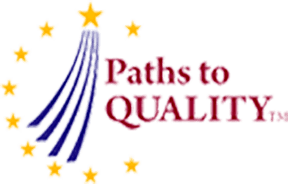Learning Centers & Child Care in Indiana

Early Education Builds Skill Sets
Our early education and child care programs for toddlers and infants organize activities by what we call “learning centers,” areas pertaining to a specific skill set. Scroll down to see an overview of each learning center and how it translates into our curriculum.
EARLY LEARNING AND CHILD CARE PROGRAMS & LOCATIONS IN INDIANA
Each of our early learning and child care centers in Indiana also offers extracurricular programming throughout the year. Learn more about our affordable Infant & Toddler Daycare, Preschool, Junior Kindergarten, Before & After School Care, and All Stars Day Camp programs.
Lking for an Abacus Early Learning Center near you? Learn more about our child care centers in Carmel, Indianapolis, Fort Wayne, and Westfield, Indiana. Extracurricular programs require separate registration and is not included in our tuition costs. Check with the child care and early learning center near you to discover what is available for your child. Schedule a tour today!. Subscribe our You tube Channel
History and Current Events
Gross Motor
In fair weather, children have the option of playing outside on our specially designed, age-appropriate playgrounds. Teachers also plan opportunities for exercise, dance and movement to rhymes, and music in the classroom.
Fine Motor
Mathematics
Language Development
Art and Creative Exploration
- Independence
- Persistence
- Cooperative and listening skills
- Writing skills
- Small muscle control
- Coordination
- Spatial awareness
- Pattern recognition
- Cause-and-effect
- Increased vocabulary
- Understanding of symbols
Science and Discovery
- Exploration of objects and their physical properties
- Exploration of living things and their life cycles and habitats
- Making observations and predictions
- Comparing and classifying objects
- Measuring objects
- Using descriptive vocabulary
- Applying prior knowledge and experiences to new content
Dramatic Play
Abacus has seen great results from integrating “dramatic play” into regular classroom time. Dramatic play involves role-play, the use of props, make-believe, peer and adult interaction, and verbal communication. Classrooms have costumes, a variety of pretend foods, empty food containers, dishes, kitchen equipment, multicultural dolls and doll clothes, housekeeping items, telephones, purses and wallets, writing materials, printed materials, puppets, and much more.
Dramatic play areas are changed periodically to reflect the children’s interests and the learning concepts for each consecutive week. We have found that dramatic play encourages the following:
- Problem solving
- Respect for materials
- Cooperative play
- Resiliency
- Recognition and understanding of emotions
- Small muscle control
- Coordination
- Writing skills
- Math skills
- Use of symbols
- Vocabulary and literacy skills
- Awareness of people and how they live
Music and Movement
Have questions? Contact any one of our Abacus centers.
Comments are closed.



